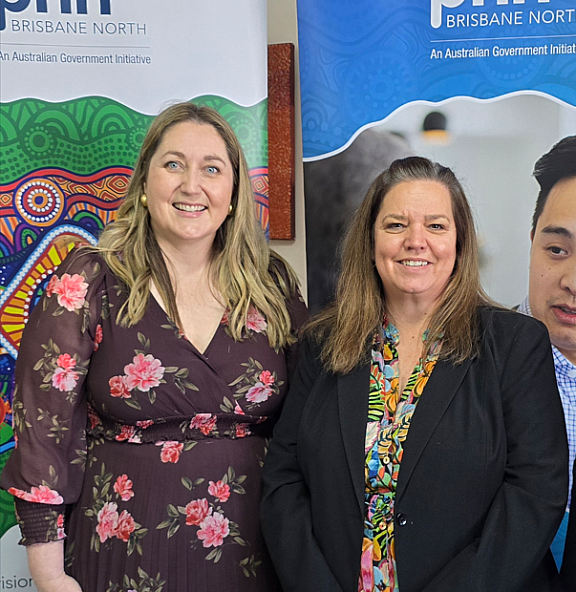
Announced: North Brisbane and Moreton Bay Medicare Mental Health Centres opening from July
Mar 27, 2025
Nov 30, 2021

As vaccination rates rise and restrictions ease, it is easy to think the worst of COVID-19 is behind us, almost even hopeful.
In the four weeks leading up to 27 June 2021, over 1.1 million mental health-related services were processed under the Medicare Benefits Schedule, a substantial increase of 13.9 per cent from the same period in 2019, and 4.1 per cent higher than 20201.
Data shows a clear rise in the number of people accessing mental health services, and counsellors and psychotherapists are an invaluable part of Australia’s mental health care system. Despite this, there is often confusion about the nature of counselling and psychotherapy and what it can achieve. This article aims to present a clearer image of these professions and how they can help promote mental health and wellbeing.
Counsellors and psychotherapists are qualified mental health professionals that work in partnership with clients to support their mental health and wellbeing. They strive to form genuine working relationships with clients based on authenticity, empathy, and confidentiality.
Counsellors and psychotherapists work with people of all ages, genders, religions, ethnicities, and sexual identities, in one-on-one or group sessions. Issues and concerns that may be discussed with a counsellor or psychotherapist include, but are not limited to, depression, anxiety and other mental illnesses, self-esteem, identity, grief and loss, parenting, relationship difficulties, domestic violence, other forms of trauma, physical illness, and disability.
While there is significant overlap between counselling and psychotherapy, minor differences exist in what they treat and how. A counsellor mainly utilises talk therapy and interpersonal skills. They engage with clients through active listening, empathy, and acceptance without judgement. They are more likely to focus on specific problems, major life adjustments, and a client’s wellbeing on a holistic level. Alternatively, a psychotherapist pays more attention to symptom reduction and how thoughts, emotions, or behaviours, contribute to these symptoms. Through talk therapy and evidence-based interventions, they explore how conscious and unconscious factors impact a client’s present experience.
Despite their differences, counsellors and psychotherapists believe in the healing power of human interaction. As clients perceive the sincerity of the counsellor or psychotherapist, they feel safe enough to open themselves to the relationship and actively engage in the process. For some, just the experience of telling their story, and being deeply heard and deeply understood, is liberating and empowering. Counsellors and psychotherapists help clients gain insight into patterns of behaviour and thought. With greater self-awareness clients can develop strategies and make decisions that will lead to increased joy, fulfillment, and peace in life.
Written by Jenna-Leigh Roberts
Student, Australian College of Applied Psychology
This article forms part of a Psychological Therapies article series, developed through a partnership between The Psychological Therapies Partnership Group and the Australian College of Applied Psychology. The articles demonstrate the role of various therapies in a stepped care approach to mental health and wellbeing.
The Psychological Therapies Partnership Group, led by Brisbane North PHN, is responsible for implementing the Psychological Therapies Chapter (chapter 10) of Planning for Wellbeing; the Brisbane North regional plan for mental health, suicide prevention and alcohol and other drug treatment services.
To find out more about Planning for Wellbeing and the objectives of Chapter 10 – Psychological Therapies, please contact Mary Robertson, Program Development Officer, Mental Health Reform: Mary.Robertson@brisbanenorthphn.org.au.
Sources:
Australian Counselling Association. (2021). Scope of Practice for Registered Counsellors.
https://www.theaca.net.au/documents/ACA_Scope_combined.pdf
Australian Institute of Health and Welfare. (2021, October 14). Mental health services in Australia: COVID-19 impact on mental health. https://www.aihw.gov.au/reports/mental-health-services/mental-health-services-in-australia/report-contents/mental-health-impact-of-covid-19
PACFA College of Counselling. Definition of Counselling.
https://www.pacfa.org.au/common/Uploaded%20files/PCFA/Documents/College-of-Counselling-Definition_of_Counselling.pdf
PACFA College of Psychotherapy. Definition of Psychotherapy.
https://www.pacfa.org.au/common/Uploaded%20files/PCFA/Documents/Definition-of-Psychotherapy.pdf

We acknowledge the Traditional Custodians within our region: the Jagera, Turrbal, Gubbi Gubbi, Waka Waka and the Ningy Ningy peoples of where we meet, work and learn. Brisbane North PHN is committed to reconciliation. Our vision for reconciliation is where the stories of our First Nations’ people are heard and shared, and networks are formed.